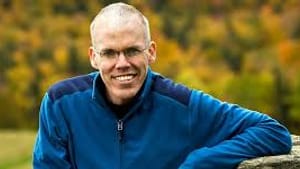Stay in the Loop
BSR publishes on a weekly schedule, with an email newsletter every Wednesday and Thursday morning. There’s no paywall, and subscribing is always free.
The Jeremiah of global climate change
Bill McKibben’s ‘Oil and Honey’

No one has done more to sound the alarm over man-made climate change than Bill McKibben. In such books as Eaarth and The End of Nature, McKibben has described the future awaiting and increasingly upon us as we overrun and despoil the only home we have. Now, in Oil and Honey: The Education of an Unlikely Activist, he describes the critical moment in his own life when he emerged from his sanctuary as a writer, teacher, and sometime lecturer into a career of public engagement as the founder of the worldwide environmental organization 350.org.
“350” is the amount of carbon dioxide per million atmospheric units that represents the limit beyond which adverse climate change begins to occur. We’re currently at about 400, and the number inexorably climbs. Of course, climate changes naturally. We’ve had ice ages and periods in which the climate was tropical virtually from pole to pole. But human civilization has evolved under temperate conditions in which variation has occurred within relatively benign limits. To tamper with those limits, as humanity has done since the onset of the Industrial Revolution, is to invite catastrophe. By now we’ve come to understand this predicament with some precision. We just haven’t done anything remotely commensurate to the problem.
In addition to 350, McKibben offers us three more numbers: 2, 565, and 2,795. Two represents 2 degrees Celsius — the amount of global warming at which experts think we need to hold the line. Not all experts: James Hansen, the world’s foremost climatologist, thinks that even a two-degree increase is “a prescription for long-term disaster.”
The second number is far larger: 565 gigatons, representing the limit of carbon dioxide we can pour into the atmosphere by 2050 and still hope to hold the line at two degrees of warming. At our current rate of carbon burning, we’ll arrive at that limit in 15 years.
Sandy’s wake-up call
The last number, 2,795 gigatons, is the estimate of known fossil fuel reserve. We can only burn a fifth of this reserve and hope to stay within two degrees of warming. But the oil, gas, and coal companies that exploit this reserve, and the countries that, as McKibben says, behave like such companies, want to burn as much of it as possible as fast as possible. Their reason is simple: profit. It’s the same motive that drives all businesses to sell the greatest volume of their product. The problem is that success in this particular business means calamity for everyone.
In short, climate control is a political problem in which the corporate interests of the few are pitted against the survival interests of the many. Unfortunately, the former hold the levers of power, particularly in the U.S., and the U.S. is the world’s largest polluter. This realization is what got McKibben into the arena. Only by confronting the fossil fuel interests directly through mass rallies, divestiture campaigns, and acts of civil disobedience, he concluded, could their stranglehold on the political process be broken.
The anti-nuclear movement provided the template for this activism, but what will have to provide its energy is, unfortunately, disaster. The climax of McKibben’s book is Hurricane Sandy, the largest recorded storm to hit the North American continent. At its epicenter, New York City reeled as it had done on 9/11, with less loss of life but vastly more material damage and a new sense of vulnerability to ocean surges previously associated chiefly with Bangladesh and Indonesia. This time, there was no War on Terror to be won, but only the hopeless wait for the next megastorm to arrive. You don’t win wars with Mother Nature.
McKibben lives in Vermont, at least when he can. His alter ego in this book is a neighbor, Kirk Webster, a beekeeper with whom he shares a farm. Bees are of course critical to the ecosystem, and the decline in their population is a matter of wide concern. Webster has made a go of his business and even taught his fellow apiarists a thing or two. He has also provided McKibben with the implicit metaphor of his book. Oil and honey are both natural secretions; one has proved a poisoned gift, the other is the original sweetness of life itself.
Part of the system?
Citing a recent uptick in the number of independent farms in America after a 150-year decline, McKibben imagines a sustainable future: “Offered a century’s grace,” he says, “I have no doubt we could subside into a workable, even beautiful civilization.” The kicker, though, isn’t just that we lack that kind of time. It’s that we’re locked into a system of human and resource exploitation that’s rushing us headlong towards ecocide, with no countervailing force to stop or even slow it.
McKibben’s critics accuse him of having become part of that system, simply by playing within its rules. They have a point. What they don’t have is a viable alternative. Living off the grid isn’t a practical mass option; industrial sabotage and ecoterrorism will only provoke backlash. Bill McKibben has been the environment’s hardiest prophet; now he is trying to rally opinion and affect policy as best he can. What he can’t be is our savior. The truth is, we must save ourselves.
What, When, Where
Oil and Honey: The Education of An Unlikely Activist. By Bill McKibben. Times Books, 2013. 257 pages; $26. http://www.amazon.com/Oil-Honey-Education-Unlikely-Activist-ebook/dp/B00BQMOG4W
Sign up for our newsletter
All of the week's new articles, all in one place. Sign up for the free weekly BSR newsletters, and don't miss a conversation.

 Robert Zaller
Robert Zaller